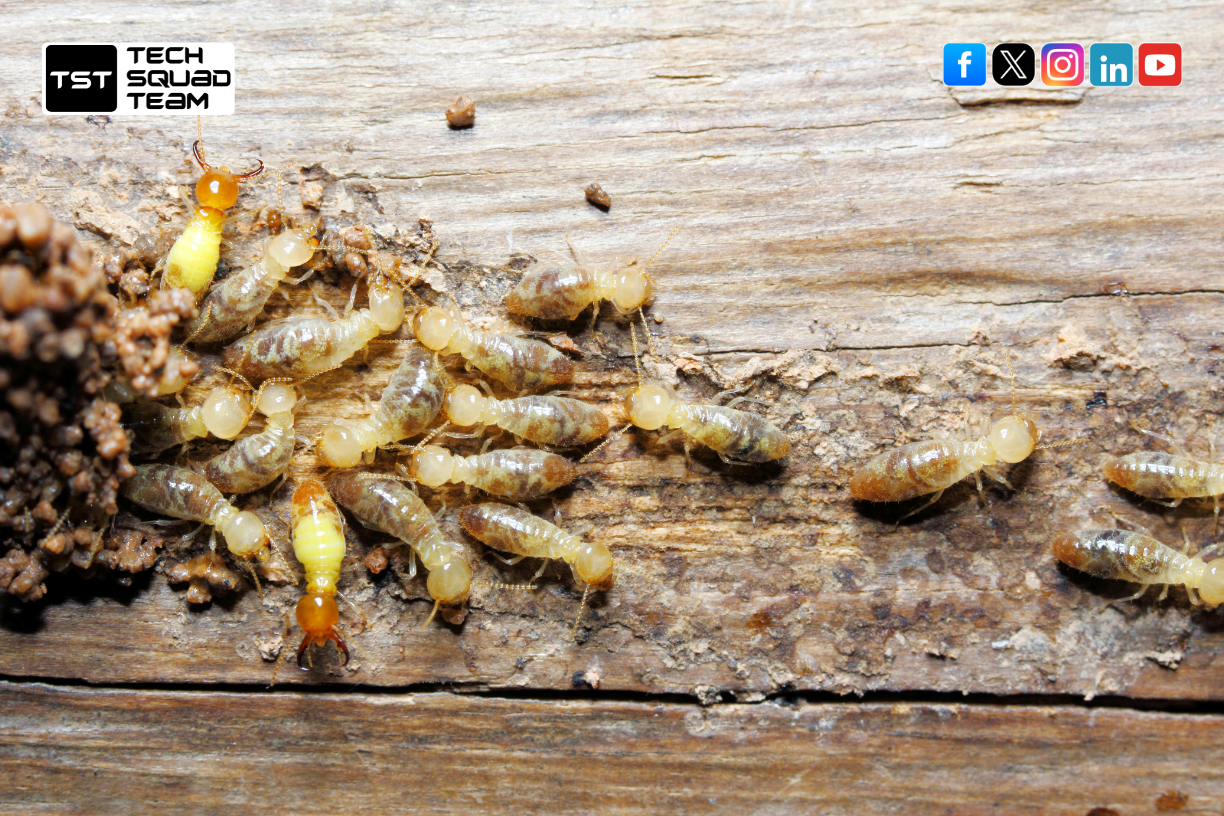 Pest Control Services
Pest Control Services
Delhi’s urban landscape blends historic architecture, modern apartments, and sprawling villas. However, this mix also makes homes vulnerable to one silent threat—termites. From wooden flooring in Vasant Vihar villas to antique cabinets in South Extension and office furniture in Connaught Place, termites quietly cause extensive damage.
Ignoring these pests can result in weakened wooden structures, costly repairs, and even mold growth due to damp infestations. That’s why termite pest control in Delhi is essential for homeowners who want to protect their property and maintain a safe, hygienic living environment.
Termites feed on cellulose found in wood, paper, and insulation materials, making residential and commercial properties in Delhi susceptible. Several local factors exacerbate their presence:
The National Pest Management Association (NPMA) reports that termites cause billions of rupees in property damage annually in India, and urban centers like Delhi are particularly affected.
Early detection can prevent significant damage. Delhi homeowners should watch for:
Neighborhoods like Connaught Place, South Extension, and Dwarka often report these signs, especially during monsoon months when termite activity peaks.
DIY remedies like sprays or neem-based solutions may temporarily remove surface termites but fail to eradicate the colony. Professional termite pest control offers:
Certified technicians examine your home, including wooden structures, furniture, and soil, to determine termite species and infestation severity.
TechSquadTeam uses trusted solutions such as Termidor, Bayer Termite Solutions, and Neem-based treatments, approved by the Central Insecticides Board & Registration Committee (CIBRC). These are safe for children and pets while targeting the termite colony effectively.
Post-treatment barriers and follow-ups prevent re-infestation—a critical factor in dense areas like Connaught Place, Dwarka, and Vasant Kunj.
Professional termite control involves baiting systems, soil injections, and localized chemical applications to target colonies hidden in walls, floors, or foundations.
Professional intervention minimizes future repair costs caused by untreated infestations and ensures lasting protection.
Different areas face unique challenges due to construction style, landscaping, and climate exposure:
Understanding hyper-local challenges enables TechSquadTeam to provide customized solutions tailored to each neighborhood.
Termites primarily weaken wooden structures, including furniture, flooring, and doors. According to the Delhi Pollution Control Committee (DPCC), untreated infestations can also lead to mold growth and damp interiors, impacting indoor air quality. In densely populated areas, neighboring homes can be affected if infestations are left untreated.
Even after professional treatment, homeowners can reduce future termite risks:
These steps are particularly important in monsoon-prone neighborhoods like Dwarka, South Extension, and Saket.
For other services, explore pest control services in Delhi and general pest control pages.
1. How often should I schedule termite pest control in Delhi?
Every 12–18 months, or immediately if you notice signs of infestation.
2. Are termite chemicals safe for children and pets?
Yes, all treatments use eco-friendly, CIBRC-approved chemicals safe for households.
3. Can termites damage furniture beyond repair?
Yes, untreated infestations can severely weaken wooden furniture and structural elements.
4. Do you provide services for both residential and commercial properties?
Yes, TechSquadTeam serves homes, offices, and commercial spaces across Delhi.
5. How long does a termite treatment take?
Most treatments are completed within 1–2 days, depending on property size and infestation severity.
6. Will termites return after professional treatment?
Professional treatment and preventive measures significantly reduce re-infestation risks; annual maintenance is recommended.
7. Which chemicals are most effective for termite control in Delhi?
Trusted options include Termidor, Bayer Termite Solutions, and eco-friendly Neem-based treatments.
8. Can termites spread to neighboring homes?
Yes, in high-density areas like Connaught Place and Dwarka, untreated termites can migrate to adjacent properties.
Termites silently compromise your home’s structure, but you can stop them before the damage escalates. With TechSquadTeam’s termite pest control in Delhi, you receive certified treatments, trained technicians, and ongoing support to ensure complete eradication.
Visit TechSquadTeam.com today to book your termite inspection and treatment and safeguard your home from costly damage.
Leave A Comment
Your email address will not be published. Required fields are marked *